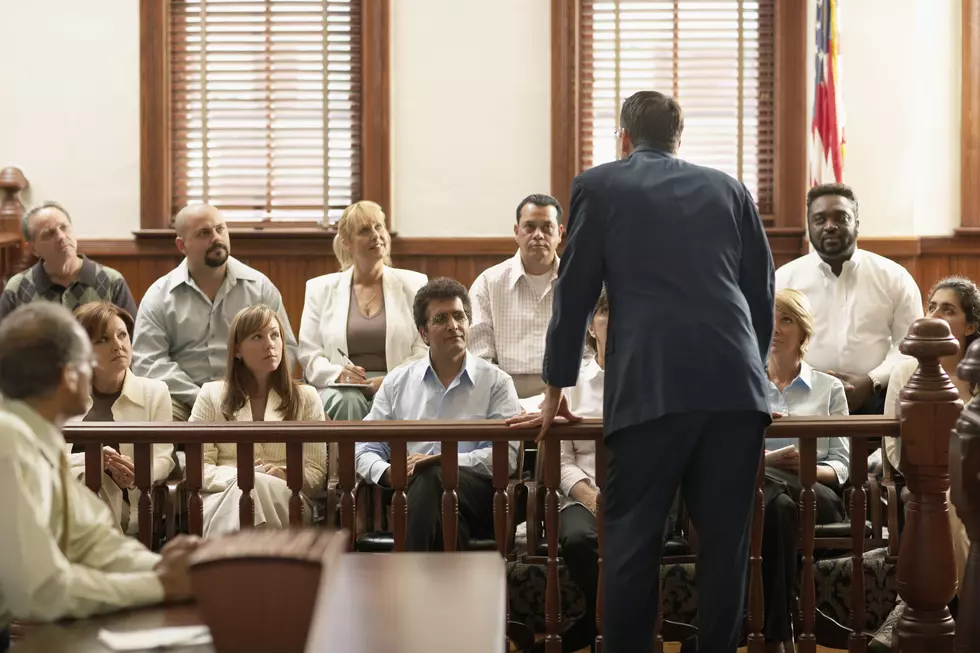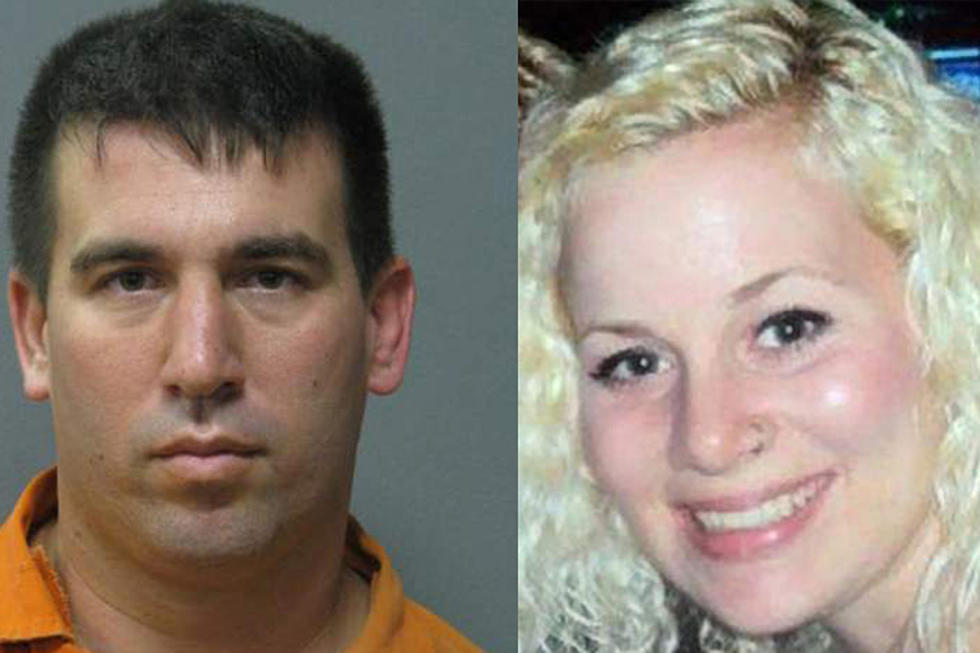
Louisiana’s Dirty Little Secret
UPDATE: On November 6, 2018, Louisiana residents voted to begin requiring unanimous jury verdicts in felony cases.
Remember the movie Twelve Angry Men? It’s the one where Henry Fonda pulls jury duty and infuriates the other 11 jurors when he refuses to return a guilty verdict right at the start of the trial. Instead, he spends the rest of the film convincing the jury that the accused man isn’t guilty, by finding reasonable doubt in the prosecution’s story.
Spoiler alert: The accused man gets found not guilty, and everyone lives happily ever after.
If you don’t remember that one, there’s pretty much an exact copy of it in an episode of Happy Days, where Fonzie manages to convince another angry jury that a purse snatcher isn’t guilty because an eyewitness claimed he saw the man grab a woman’s purse with his left hand and accelerate his motorcycle with his right hand when everyone knows that the bike he was riding has its accelerator on the left handlebar. So how could he grab the purse with his left hand and accelerate the bike with his left hand at the same time? He couldn’t! CASE DISMISSED!
Both plots are pretty good examples of why our legal system in the United States requires unanimous jury verdicts in criminal cases. Most people sitting on a jury don’t want to be there, and a lot of people just want to convict the accused and get it over with - which is why that one dissenting voice is so important and can be so powerful. Because we need it.
Except in Louisiana, of course.
Last week, I wrote about how we’re the prison capital of the world, which is totally true and completely scary. In that article, I speculated on why we have such a massive incarceration rate, and I was mostly right. Feeding the hungry mouths of private prisons run for profit requires a steady stream of new criminals to keep it going, but it turns out that was only part of the problem.
The real problem is the kangaroo courts of our great state.
You see, Louisiana is the only state in the country that allows non-unanimous jury verdicts in non-capital, hard labor felony cases, requiring only 10 of the 12 jurors to agree. Oregon is the only other state that allows non-unanimous verdicts, with 11 of 12 jurors needing to agree.
To break that down for you, say you’ve been put on trial for a criminal offense that could lead to serious prison time. In Oregon, you’d need 11 jurors to find you guilty, and in Louisiana, you’d only need 10. For the rest of the country, all 12 jurors would need to return a guilty verdict in order for you to be convicted.
There’s a reason for this.
Think about the plot of Twelve Angry Men. The whole point of the movie involves one man going against the other 11 jurors who are already convinced of an innocent man’s guilt, and slowly sowing the seeds of reasonable doubt into their minds until they all end up unanimously rendering a verdict of Not Guilty. The same thing happened with Fonzie and the purse snatcher.
Sure, they're just stories, but they're important. At the start of any trial, most of the jurors just want to take the path of least resistance and return a guilty verdict so they can get back to their lives - which is something the judicial system wants, as well. The faster it can get jurors to return a verdict, the faster it can move on to the next case before the court. Long deliberations cause delays, and people have lives, after all.
Which is why unanimous verdicts are so important. Because a criminal trial isn’t about the jurors’ lives, or the judge’s life, the bailiff’s, or the court reporter’s - it’s about the accused’s life. Is this person actually guilty? Do they deserve to have their lives taken from them, or at least put on hold for several years while they sit in prison?
Is there reasonable doubt?
Look, I know jury duty sucks. But wanting to speed it up just to get back to whatever you were doing before that little slip came in the mail isn’t helping anyone. And with non-unanimous verdits, it’s actually hurting everyone.
Louisiana leads the nation in the number of exonerated people per capita, and tops the charts in the amount of people we wrongly convict.
This should terrify everyone.
Sure, a lot of people still have a great deal of faith in the legal system. That’s good. It’s comforting to believe that the system works, but it’s also naive.
The system might work some of the time, maybe even most of the time, but it doesn’t work all of the time. And if you ever find yourself on the wrong side of a courtroom, do you really want to roll the dice with your fate?
“But if you’re innocent, you have nothing to fear!”
I hear you, but you’re wrong. With non-unanimous jury verdicts, you have everything to fear. Without requiring a unanimous verdict, you need three Henry Fondas (or Fonzies) fighting for you in the deliberation room.
Good luck with that.
Especially if you’re a minority.
Yeah, that’s the other dirty little secret of the Louisiana legal system: it’s built on a foundation of slavery and held together with the lingering ties of racism.
I know that sounds inflammatory - and it is - but it’s also the truth. Here’s a quick history of how Louisiana adopted the 10-2 jury rule. Warning: It’s not pretty.
The rule was adopted in 1880, during the Jim Crow era. “Jim Crow” was a slang term for a black man at the time, and the term was applied to a whole series of laws designed to limit the rights of people of color. It led to “separate but equal” (Plessy v. Ferguson), limiting voting rights, poll taxes, and more.
With the Civil War having ended only 15 years earlier in 1865, Louisiana’s 10-2 jury rule was designed to make it easier to feed free black people into Louisiana’s prisons, which exploited inmates with a privatized convict-leasing system that replaced the slave labor the state had recently lost.
Today, the rule allows attorneys to put just enough minority jurors on a jury to avoid violating a Supreme Court ruling from 1986 (Batson v. Kentucky) that prevents the elimination of jurors based solely on their race, but not enough to prevent a conviction if those jurors vote along a racial or social bias, or if they have a suspicion of reasonable doubt.
In a case from 1989 (State v. Collier), the Louisiana Supreme Court addressed this very problem:
The record in this case strongly suggests that the prosecutor, already frustrated in defendant's first trial by a hung jury which included three blacks, pursued a strategy in the second trial of limiting the number of blacks on the jury to two, thus making a conviction possible even if all of the blacks on the jury voted according to racial bias.
Even our state’s Supreme Court admits and acknowledges the problem, but the rule still stands. Why?
It all goes back to the same racial and profit motivations that stretch from the present day, all the way back to the end of the Civil War. Back then, the courts fed minorities into the prison system in order to lease them out as free labor. Today, feeding a steady supply of inmates into private, for-profit prisons lines the coffers of the management companies and local sheriff’s offices that run them.
But the effect of the non-unanimous verdict isn’t limited to minorities. While it does tend to affect minorities more (especially considering Louisiana locks up more black people than anyone else) it hits everyone, regardless of race or social background.
If you find yourself accused of a crime you didn’t commit, you’re going to have to face a rigged jury in Louisiana. That’s just how it works here.
Without requiring unanimous verdicts, courts negate the power of the dissenting vote. Without the dissenting vote, it’s mob rule. And mob rule is always swift, always firm, and almost always wrong.
King Alexander, Supervising and Major Crimes Attorney with the Calcasieu Parish Public Defenders Office, describes the lack of an individual jurors veto power as encouraging the mob mentality:
“What Louisiana has done is take that lynch mob milling around outside the jail, stopped only by an honest sheriff's scatter gun, out of the street, sworn them in, and put them into the jury box to decide people's fate. It is mob rule.”
Merely being accused of a crime is enough to ruin an innocent person’s reputation, especially in the current age of trial by social media, but simply being accused shouldn’t also be automatic conviction - which it very nearly is, in far too many cases.
Alexander elaborates:
“As a defense lawyer, I know that it is vastly more difficult to keep an innocent person from being railroaded when I have to convince at least three jurors not to convict, versus only one. Each juror who has been duly vetted by the system is supposed to have individual veto power, for the purpose of stopping the mob mentality.”
The American Civil Liberties Union of Louisiana has recently launched a campaign to raise awareness of this outdated, backward, and inherently racist rule. This past October, it hosted a critical discussion of the rule at Southern University Law Center. “The Shame of Our State: Non-Unanimous Jury Verdicts in Louisiana” hosted panelists Angela A. Allen-Bell, Associate Professor of Legal Writing & Analysis at Souther University Law Center, Calvin Duncan, Program Director for the Light of Justice Project, and William C. Snowden, Founder of The Juror Project.
In a press release for the event, Marjorie Esman, Executive Director of the ACLU of Louisiana, stated:
“In Louisiana we continue to send people to prison knowing that there remains some doubt about guilt. This shameful practice has led to false convictions and is tied to a history of slavery and convict leasing. We cannot pretend to be fair and just while this practice continues. It’s time to begin a conversation about restoring the unanimous jury verdict to its rightful place in Louisiana law.”
She’s not wrong.
I haven't lived here very long, but from all the people I've talked to who've grown up in Louisiana, very few of them knew of this oddity in our court system. It's not exactly a secret, but it's far from common knowledge. The judicial system and the various entities that profit from non-unanimous jury verdicts would probably like to keep it that way by keeping the public in the dark.
Don't let them.
The best tool we have is awareness. Tell your friends and family about the issue. Write your representatives, blow it up on Facebook and Twitter, and keep it going until change finally comes, however long overdue.
Because we can do better, Louisiana.
We need to do better.
We owe it to ourselves, to every person who has ever been wrongfully convicted, and to our children. Future generations shouldn’t have to grow up in a state with racist policies created after the Civil War that were designed to maximize convictions with little to no regard for the truth.
It’s 2017. We put a man on the moon nearly half a century ago. We invented the internet. We carry computers and cameras and video recorders in the palms of our hands, and sometimes even talk to other people with them. The Civil Rights Act was passed over half a century ago. We’ve moved beyond the Jim Crow era.
It’s time to take this relic of our shameful past out of our courtrooms and put it where it belongs: in the trash bin of history.
More From Cajun Radio 1290 AM






